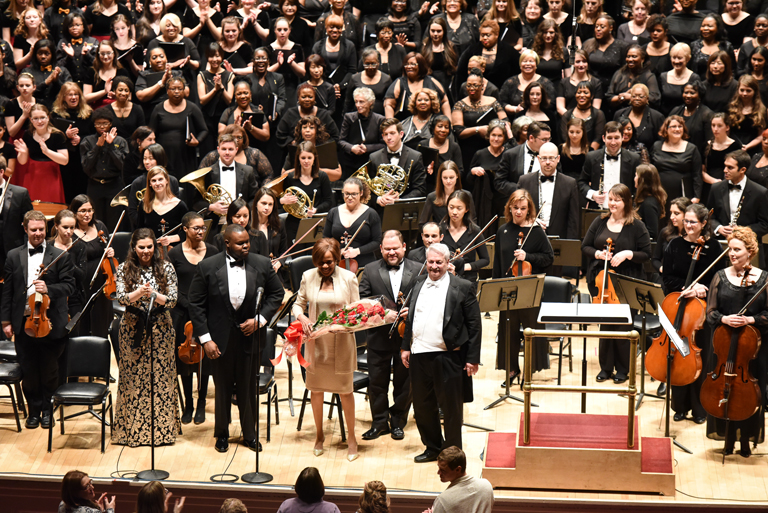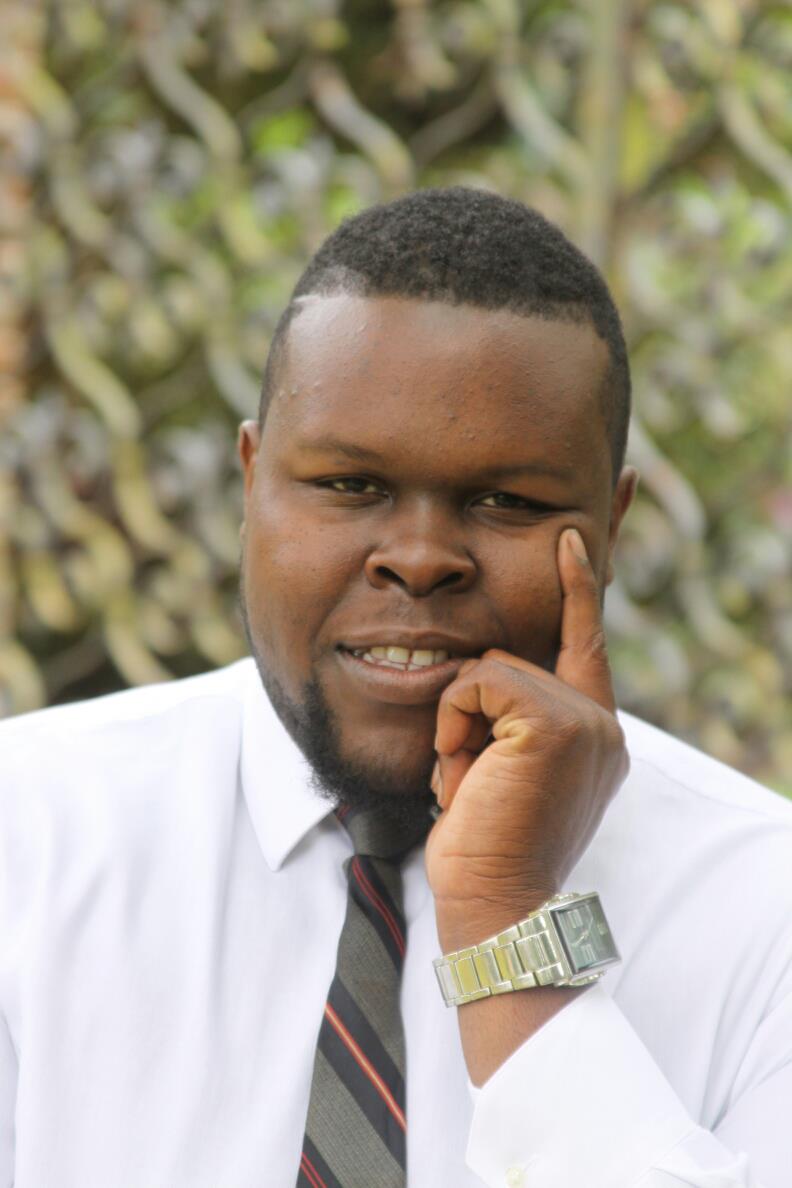by Jeffrey Williams for New York Concert Review, New York, NY - Feb 22, 2015
Distinguished Concerts International New York (DCINY) presents Two Cultures, One Dream
Jonathan Griffith, DCINY Artistic Director and principal conductor; Jie Yi, Debut Conductor
Earnestine Rodgers Robinson, visiting composer; Heather Sorenson, arranger, orchestrator and accompanist
Ana Isabel Lazo, soprano; Ting Li, tenor; Tshombe Selby, tenor; Chai-Lun Yueh, baritone; Brian Wahlstrom, baritone and narrator; James T. Meeks and Michelle R. McKissack, narrators; Jiaju Shen, pipa
Distinguished Concerts Orchestra; Distinguished Concerts Singers International
Stern Auditorium, Carnegie Hall, New York, NY
February 16, 2015
Two Cultures, One Dream was the title of the concert presented by Distinguished Concerts International New York (DCINY) on February 16, 2015. While the “two cultures” were only implied as East and West, the “one dream” was explicit – freedom from oppression and the triumph of the people against their oppressors. With singers from Connecticut, Illinois, New Jersey, New York, North Carolina, Ohio, Texas, Washington, Canada, China, New Zealand, Taiwan, and “individuals from around the globe,” the stage was set for that at which DCINY excels – the “big show.”
The first half of the program was the Yellow River Cantata (which was reworked in 1969 at the instigation of Madame Mao into the well-known Yellow River Piano Concerto, by a “committee” of five Chinese composers) by Xian Xinghai (1905-1945). Xian was one of the first Chinese composers to have adopted western influences, having studied composition with Vincent D’Indy and Paul Dukas in Paris, and no doubt with Soviet composers during his time in the Soviet Union in the 1940s. Given the honorific “The People’s Composer” by Mao Zedong, Xian’s legacy rests largely his with his more “populist” works, the Yellow River Cantata being his best-known work with western influences.
The “original” Yellow River Cantata was written in 1939, which, according to Xian’s daughter, took only six days to complete. Using the poetry of Guang Weiran as the text, there are four performed versions, with seven to nine movements. The version performed on this occasion is the most frequently played, with seven movements. The writing is tonal and bears the influences of Mr. Xian’s western studies, sometimes in a derivative way. The melodic material is largely folk-influenced and uncomplicated. The work is to exhort the Chinese people to resist and repel the Japanese invaders who were occupying China at the time (1939). The idea of a musical work to rally the people is not unique (Shostakovich’s Symphony No.7 “Leningrad” being one of the most obvious examples), but it is chiefly this context that makes Yellow River Cantata effective. Each movement begins with a male narrator exhorting the people to action, using the Yellow River as a symbol of Chinese identity.
Now, after all this background, it is time to talk about the actual performance. This was one of the most energetic performances of any work I have seen in many years! There were no half-measures at any time; it was full tilt from start to finish by all. It was especially interesting to see how involved the chorus was in performance. It was obvious they were giving it their all, with evident pride, as if to say “This is our music, and we are proud to share it with you.” Conductor Jie Yi was a force of nature, with boundless energy and enthusiasm that won the day. Mr. Jie has star potential and charisma that reminds one of Gustavo Dudamel and the young Leonard Bernstein. The soloists were outstanding as well. Baritone Chai-Lun Yueh was confident and projected with both strength and dignity, tenor Ting Li and baritone Brian Wahlstrom in duet were well matched as Jiaju Shen set the mood with accompaniment on the pipa, while soprano Ana Isabel Lazo captured the heartbreak in “Lament of the Yellow River” with perfection. Finally, Mr. Wahlstrom’s narration was excellent, in both English and Chinese, as his voice filled the hall. The net result was, to this listener, a rare occasion where the quality of the performance exceeded the actual intrinsic value of the work itself.
After intermission, it was time for the world premiere of Exodus, a four-part oratorio depicting the story of the Israelites being held in captivity in Egypt, their ultimate escape, and their triumph in reaching the Promised Land. The story is so well known that I will not recount it here. The composer, Earnestine Rodgers Robinson, has written two other critically acclaimed oratorios, The Crucifixion and The Nativity. It is highly likely that Exodus will join these two works in similar esteem, as it is a piece of great power, worthy of the subject matter and never losing its hold on the listener in its nearly one-hour length. The vocal writing is highly effective and the first-rate orchestrations by Heather Sorenson serve to strengthen the work even more. I would like to make special mention of the setting of Psalm 23 in Part IV, which has been set by some “heavy hitters” in musical history. Ms. Robinson’s version can hold its own with any of them.
With the dynamic narrations from Pastor James T. Meeks and Michelle R. McKissack (a daughter of Ms. Robinson), the talented tenor Tshombe Selby, the return of Ms. Lazo with the hard-working Mr. Wohlstrom, and the passionate and well-prepared chorus, it was a winning performance. Led by the supremely able Jonathan Griffith, who has made an art form of leading forces of several hundred, and the fine Distinguished Concerts Orchestra, it was a great end to the evening. The audience obviously found this to be so, given the ovation and the cheers for Ms. Robinson when she came to the stage. Congratulations to all for a great concert.

